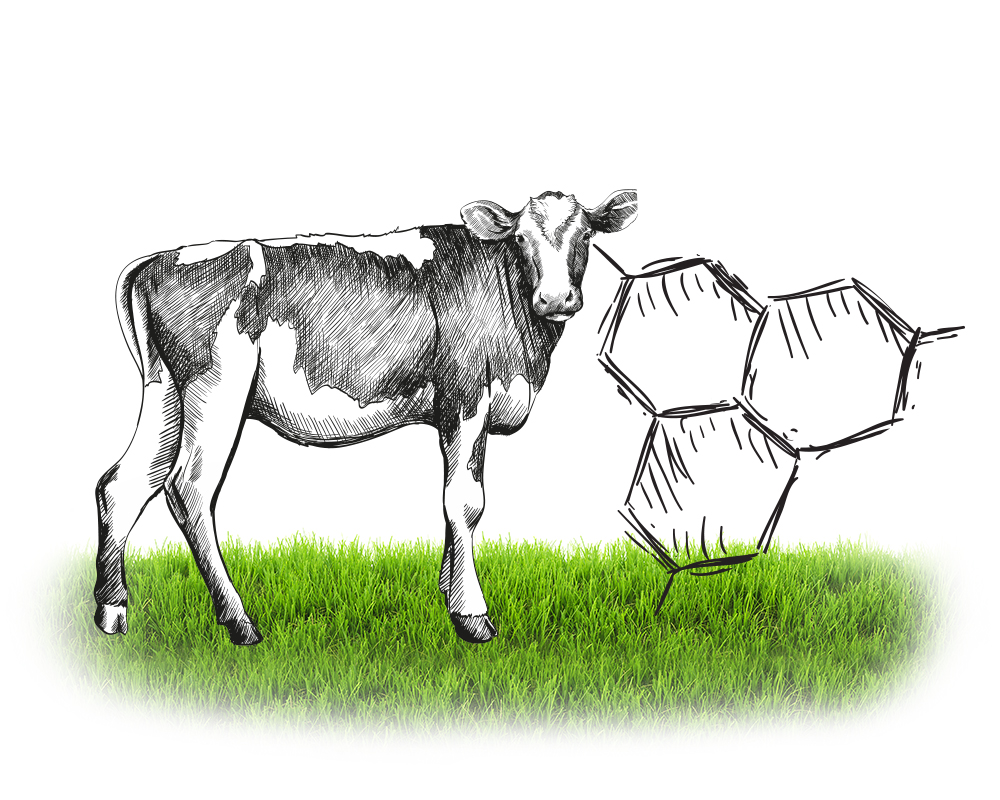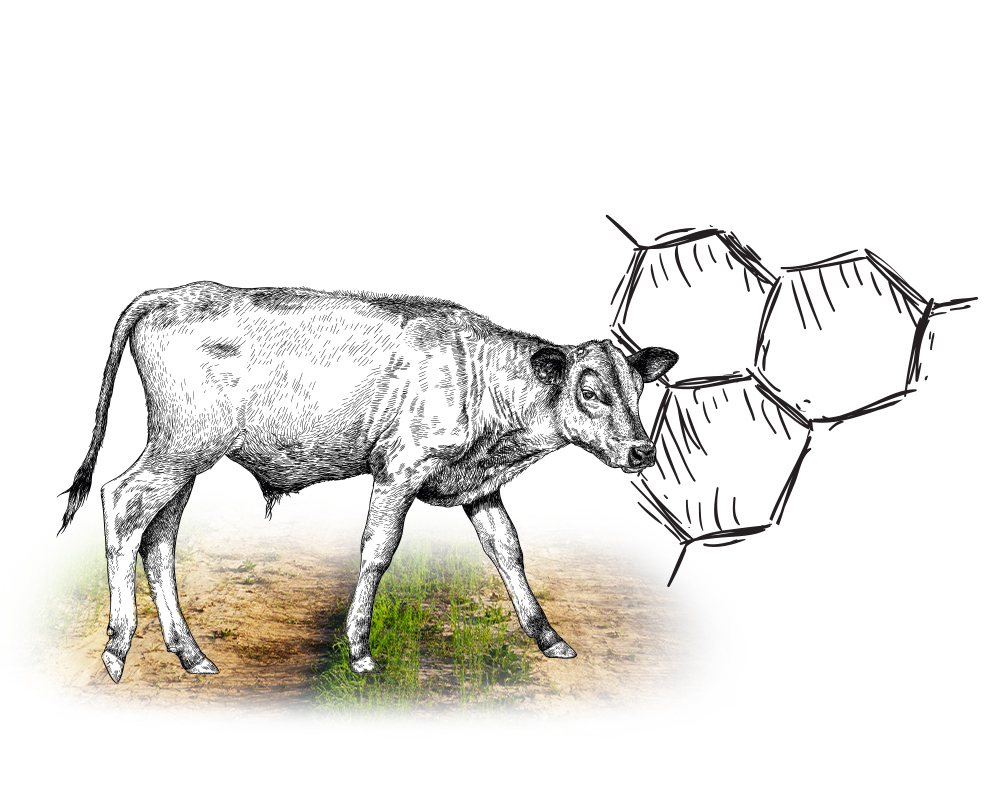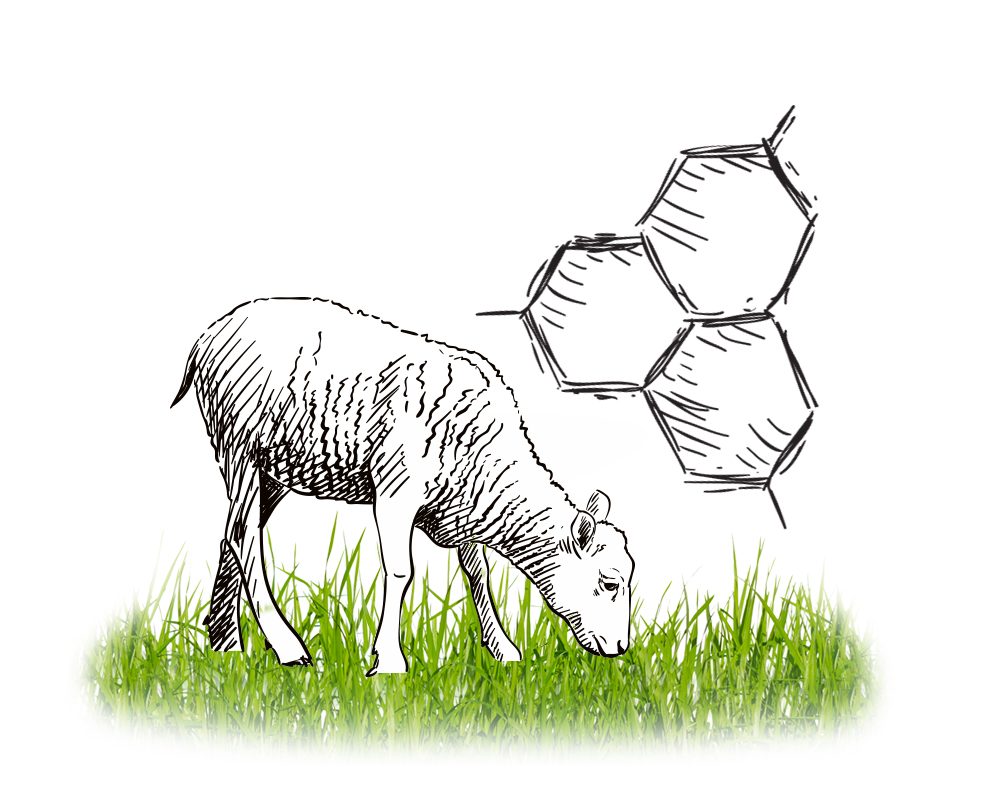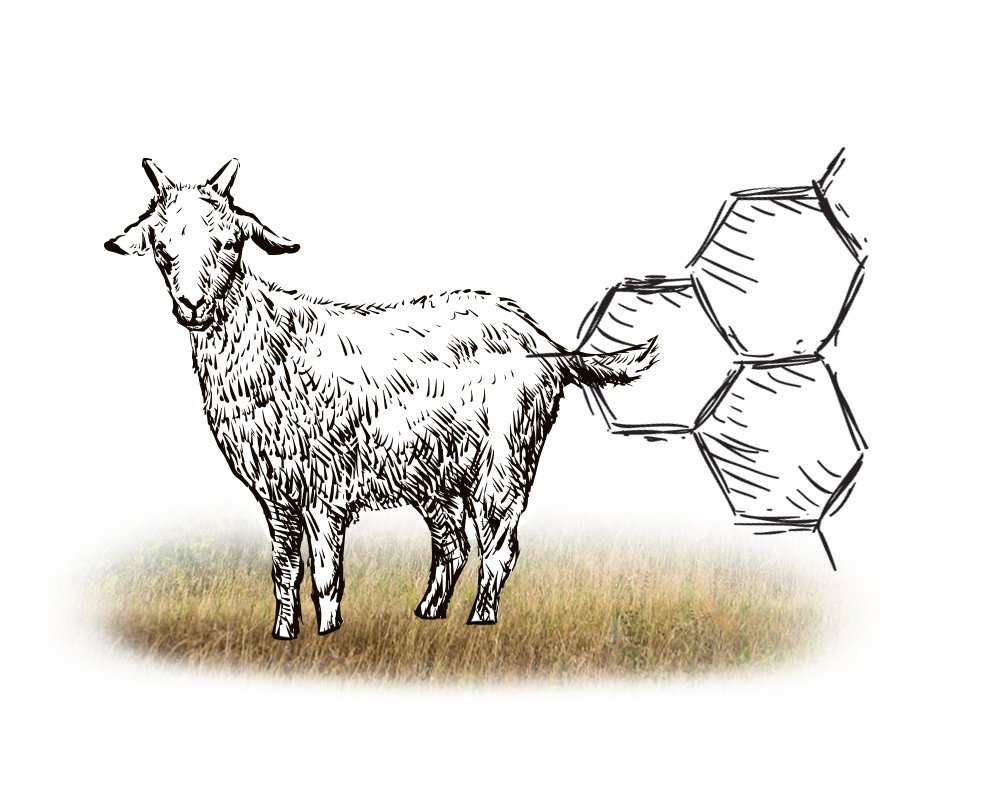Our Raw materials
Rennet is obtained by extracting the enzymatic complexes of young ruminant vells such as calves, lambs and kid goats.
These enzymes, contained in the fourth stomachs of animals, digest the mother’s milk and coagulate the milk when added to it to form curd and then cheese.
Calf vells
The enzymes extracted from calf vells are the most widely used for the production of high-quality cheeses such as PDO, PGI, AOC, etc.
They are the most precious rennet in the world, because with its enzymatic richness they give to the finished product an aroma and a fine and unique taste.


Buffalo vells
Extracted from the vells of Lazio and Campania buffalo calves, the enzymes are suitable for coagulating sweet, fat and protein milks such as buffalo milk.
They are the ideal rennet for the production of typical cheeses with a characteristic flavor such as buffalo mozzarella, creamy cheeses and stracchinelle.
Lambs vells
The enzymes extracted from the vells of suckling lambs are rich not only in chymosin and pepsin but also in lipase: enzymes secreted by the glands of the kink and ingested with saliva during feeding.
They are the ideal rennet for coagulating sheep’s milk in order to produce mature cheeses marked by a pleasant spicy flavor, such as pecorino, provolone, caciocavallo and fiore.


Kid Goat vells
Extracts from vells of suckling kid goats, in addition to chymosin and pepsin also contain lipases.
These enzymes are excellent for coagulating goat’s milk and give cheese such as caprino, toma and scamorza a particularly accentuated smell-taste profile, while conveying a sharp flavor as for spicy provolone.
Selection
We at Clerici hand-pick our suppliers, which is why each aspiring collaborator must pass numerous internal quality checks and have the CE mark of excellence. The best vells, selected from all over the world, are transported and stored at -18°C to maintain their unique qualities.
